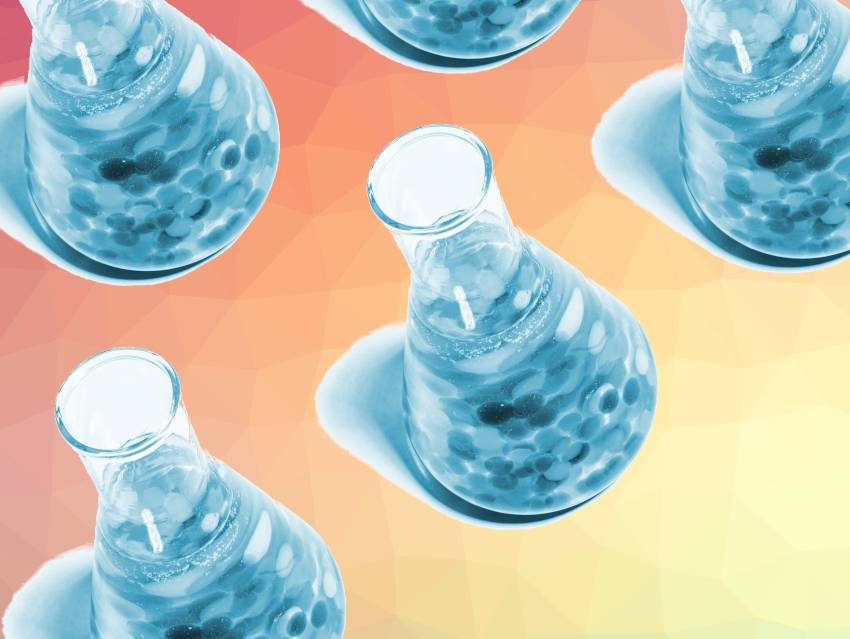The Miller–Urey experiment is a classic experiment used to investigate the chemical origin of life on Earth [1]. It used water, methane, ammonia, and hydrogen as reactants to simulate the atmosphere of early Earth in a sealed flask and electric sparks to simulate lightning. The researchers identified amino acids among the reaction products, indicating that biologically relevant organic compounds could have formed from simple precursors.
The Miller–Urey experiment and similar simulations have generally been performed in borosilicate flasks using alkaline solutions. This could lead to small amounts of silica dissolving—and potentially influencing the chemical reactions that take place. Juan Manuel García-Ruiz, Universidad de Granada, Spain, Raffaele Saladino, Ernesto Di Mauro, University of Tuscia, Viterbo, Italy, and colleagues have performed experiments to investigate the influence of silica on the Miller–Urey experiment.
The team performed Miller–Urey-type experiments using either borosilicate glass reactors, Teflon® reactors, or Teflon® reactors containing added pieces of borosilicate glass, starting either at a pH of ca. 11 or buffered to a pH of 8.7. The reaction products were analyzed using gas chromatography coupled to mass spectrometry (GC–MS).
The researchers found a large variety of relevant products after the experiments, e.g., amino acids, alkyl amines, carboxylic acids, and nucleobases. Experiments with borosilicate glass yielded a much larger diversity of organic compounds than the Teflon®-only experiments, and several amino acids were produced only in the presence of borosilicate. This indicates that that silica and silicates could promote prebiotic synthetic routes. According to the researchers, the glass reaction vessel in Miller–Urey-type experiments could, thus, simulate the role of rocks and minerals on the early Earth.
- The role of borosilicate glass in Miller–Urey experiment,
Joaquín Criado-Reyes, Bruno M. Bizzarri, Juan Manuel García-Ruiz, Raffaele Saladino, Ernesto Di Mauro,
Sci. Rep. 2021.
https://doi.org/10.1038/s41598-021-00235-4
Reference
- [1] A Production of Amino Acids Under Possible Primitive Earth Conditions,
Stanley L. Miller,
Science 1953, 117, 528–529.
https://doi.org/10.1126/science.117.3046.528




